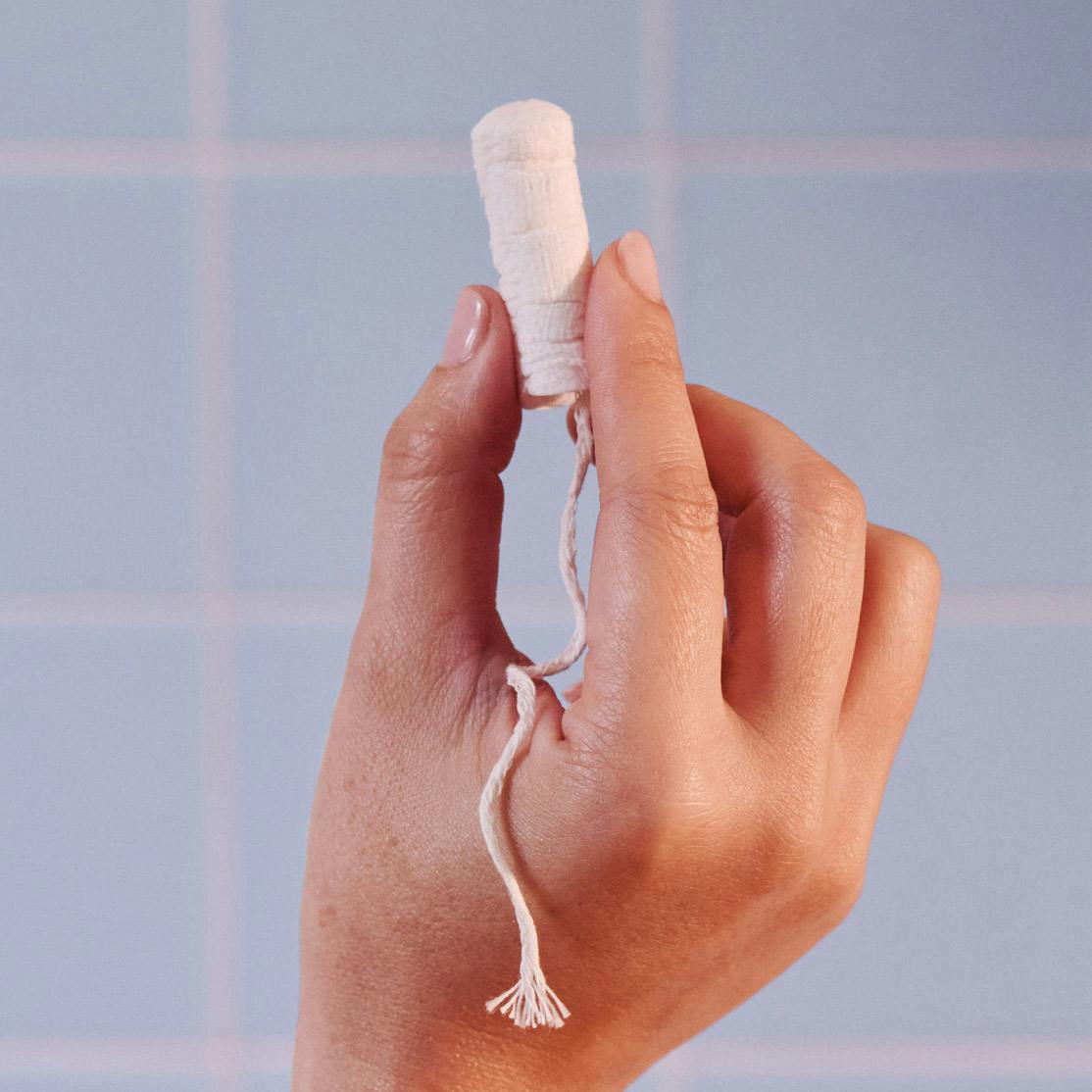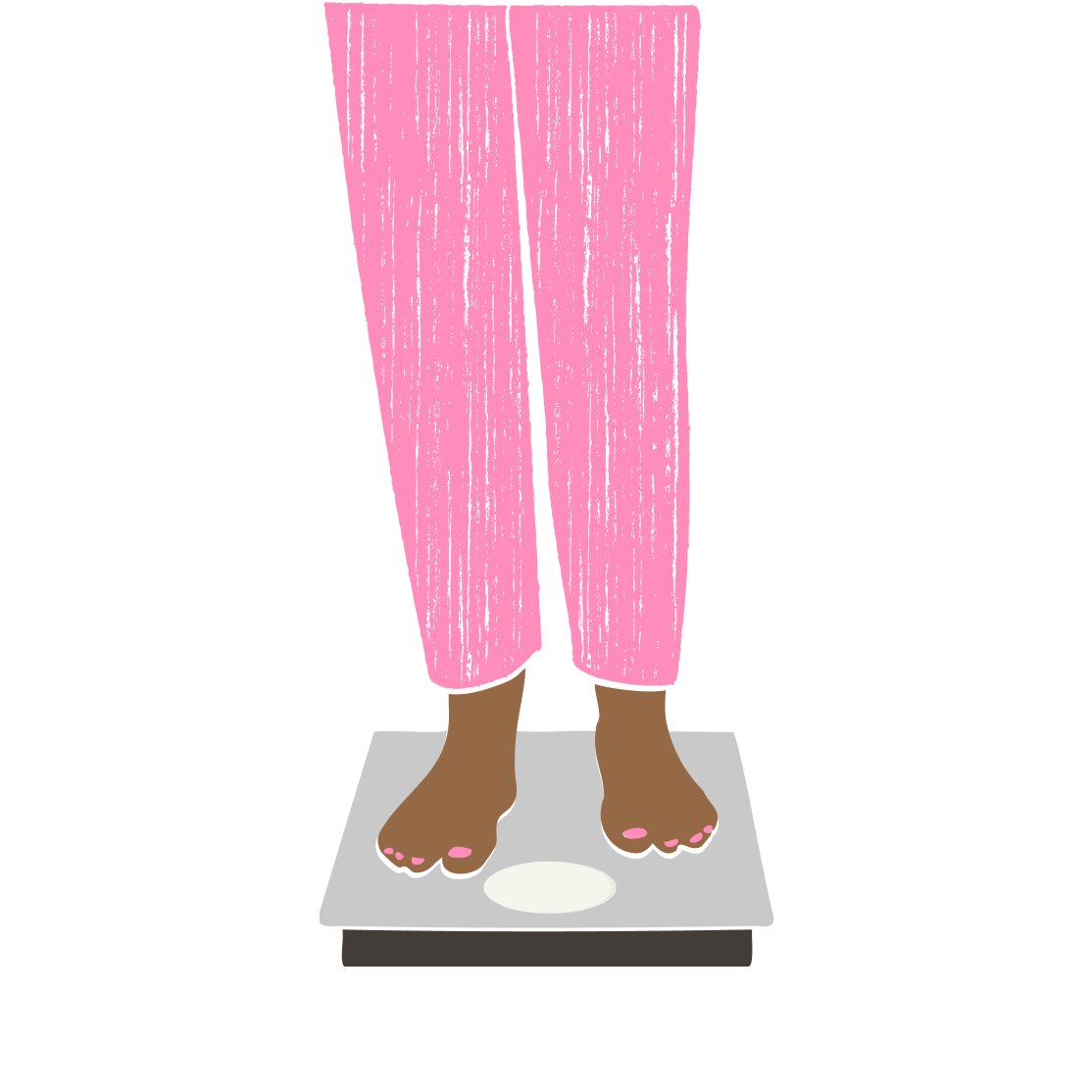Noticing a change in your body scent during menopause? You’re not alone! Hormonal shifts, increased sweat levels, and changes in pH can all lead to unusual body odors. From sweat becoming more acidic to changes in vaginal pH, menopause can bring surprises—but with the right care, you can manage these shifts effectively to feel (and smell) like yourself again!
You were warned about the hot flashes and mood swings. But now that you’ve reached menopause, you may have discovered a surprising and not-so-welcoming symptom: an unusual body scent. Though changes in body scent are incredibly common during menopause, it can be unsettling to realize that something so basic—the way you smell—has changed. Your body has a brand new signature scent, and you can’t get rid of it with your usual odor-fighters.
Hormonal fluctuations and increased sweat levels are two common culprits of an unusual body odor during menopause. However, this symptom can be quickly addressed and mitigated with appropriate treatment. If you’re ready to return to feeling, and smelling, your best, keep reading!
Understanding Body Scent Changes
Sometimes, it may feel like menopause changes everything you once knew about your body. Beyond the disruption of your regular periods, the hormonal shifts that occur during the menopause transition also may affect your brain, bones, hair, skin, and much more. Most of these changes can be traced to one root cause: the drop in estrogen hormone levels.

Estrogen plays an essential role in helping to regulate your sweat glands and your skin's pH. As your estrogen wanes, you may produce more sweat than usual—and if you experience hot flashes, sweating more may worsen already annoying temperature spikes. But the problem isn’t just that you’re sweating more than you used to; the chemical composition of sweat changes dramatically during menopause as well. Sweat becomes more acidic and can carry a sharper odor. Additionally, physiological changes, such as an increase in body temperature and changes in skin pH, contribute to the sense of smelling “off.”
Remember, body scent changes are common during menopause and don’t reflect a lack of hygiene or cleanliness. No amount of body wash or perfume will change your hormonal fluctuations! So ditch the shame and dig into the science.
Vaginal Scent Changes
Depending on your menstrual cycle, diet, and other personal factors, fluctuations in vaginal scent are to be expected. But if your vaginal scent changes, seems stronger, or straight up unpleasant, menopause may be the culprit.
Because of a lack of estrogen, a similar reaction to what happens with your skin causing you to sweat more is also happening within the vagina and surrounding tissue called the vulva. Until the decline of estrogen, the pH of your vaginal ecosystem is fairly acidic. But as your estrogen dwindles, the vaginal and vulval tissue becomes less acidic, creating a more favorable environment for odor-causing bacteria.
Additionally, tissue layers within the vagina become thinner and the vaginal canal may lack lubrication during menopause, which leaves it vulnerable to irritation and infection. If you notice a persistent odor accompanied by itching or burning in the vagina or vulva, reach out to your health care provider to get yourself checked.
Dealing with Body Scent Changes
Noticing a new body odor that you’re less than thrilled about? These steps can help you feel confident in your skin again.
Lifestyle Adjustments
Changes to your diet can contribute to overall wellness and the body’s scent. For example, staying hydrated can replace loss of body fluid that may occur with extra sweating and help the body stay cool. Avoiding foods like garlic and onions may also keep you smelling fresher because the sulfides and allium in these vegetables can make their way into your sweat and intensify the smell.
Self-Acceptance and Empowerment
Not liking your body odor can be an insidious issue; after a while, dealing with a change to your body that you’re uncomfortable with can be hard on your self-esteem. That’s one of the many reasons we recommend self-love practices during menopause. Since nearly half of women experience mood changes like depression and anxiety throughout menopause, making it a habit to take time for yourself can be a powerful way to protect your mental health.
Seeking Professional Consultation
Don’t hesitate to seek medical attention for a change in body scent. Many women go through menopause feeling alone with this symptom: It’s estimated that only a quarter of women in menopause seek medical intervention for any menopausal symptoms they may be experiencing. The fact is, change in body scent is a common phenomenon among menopausal women, and there are solutions for changes in scent and most (if not all) of your other menopause-related symptoms.
When to Seek Guidance From a Healthcare Provider
Seeking medical attention during menopause can help prevent symptoms from becoming chronic and affecting your quality of life. Tell a healthcare provider if you experience changes in your body scent or develop an unwanted odor that could be related to menopause.
While changes in vaginal odor are commonplace, a persistent unpleasant smell can be a sign of a deeper issue that requires expert treatment. Because your vagina is more vulnerable to irritation and infection throughout menopause, any sign of dryness, pain or discomfort deserves immediate attention. Ensure you note when any symptoms or significant changes in scent begin so your healthcare provider can find the best solution.
Gynecological and Dermatological Visits
Consulting with your gynecologist and dermatologist during menopause may help relieve genital and skin symptoms related to changes in odor during menopause. A dermatologist treats skin conditions specifically and has specialized knowledge about many skin conditions, including common midlife issues. If you experience rashes, chafing, or other forms of irritated skin during menopause (possibly caused by the products used to manage body odor), a dermatologist may be able to make helpful recommendations, prescribe medications, creams or tinctures. A gynecologist specializes in caring for a female’s gynecological issues and may be well versed in menopause.
But if your usual gynecologist is not experienced in menopause—something that is frustratingly common among OBGYNs—there are other options. Consulting with a menopause specialist may be hugely beneficial; not only will you be able to find the medical solutions to menopausal concerns, you may feel reassured that your symptoms are common, treatable, and nothing to feel embarrassed about. Again, you are not alone.
Solutions Without Shame
You don’t have to just suffer through menopause; you can seek relief from your symptoms. Here’s where to start when looking for solutions for menopausal body odor.
Personalized Approaches
Every woman experiences menopause differently and no two women will have the exact needs and symptoms. This is why it’s vital to consult with a medical professional who is deeply familiar with the nuances of menopause.
Without the guidance of a specialist or a gynecologist well-versed in menopause and perimenopause, you may be given a “one-size-fits-all” solution that actually doesn’t work for you. Seeking treatment from a provider who focuses entirely on menopause will empower you to find the solutions that work best for your body.
Supportive Communities
Yes, every woman’s menopause experience is unique, but this doesn’t mean you must go through it alone. Seek community with others managing this transition; you can arrange a weekly lunch with your friends in a similar stage of life or find an online support group. Joining a space where you can discuss your symptoms and struggles and share valuable advice may help you feel less alone.
Combating the Stigma Surrounding Menopausal Body Scent Changes
By talking openly with your peers, family, and medical team about the ways your natural scent changes throughout menopause, you contribute to the de-stigmatization of not only body odor but menopause and women’s health in general. Education is critical to helping people understand that these shifts are a natural consequence of hormonal fluctuations and aging. It also positivity reinforces the idea that every woman's journey through menopause is unique and should be celebrated—even the parts that aren’t picture-perfect.
Changes in your natural scent can be unexpected and even distressing, but remember that they are manageable. Ready to talk to a specialist? Book your virtual visit with a Midi clinician today. We are here to support and empower you, no matter what comes up in this phase of life.
The Takeaway
- Changes in body scent are incredibly common during menopause, but it can be unsettling to realize that something so basic—the way you smell—has changed.
- Hormonal fluctuations and increased sweat levels are two common culprits of an unusual body odor during menopause.
- The problem isn’t just that you’re sweating more than you used to; the chemical composition of sweat changes dramatically during menopause as well. Sweat becomes more acidic and can carry a sharper odor.
- Consulting with your gynecologist and dermatologist during menopause may help relieve genital and skin symptoms related to changes in odor during menopause.
If you’re in perimenopause or menopause and want guidance from clinicians who specialize in women’s midlife health, book a virtual visit with Midi today.
Hormonal change is at the root of dozens of symptoms women experience in the years before and after their period stops.
Our trained menopause specialists can help you connect the dots to guide you towards safe, effective solutions.
Whether you need personalized guidance or a prescription routine to tackle symptoms—including brain fog, hot flashes, sleep trouble, mood swings, and weight gain—we’ve got you covered.
Frequently Asked Questions
Does menopause change your body odor?
Menopausal changes in body scent are primarily attributed to fluctuations in hormonal levels. As estrogen decreases, it can impact the composition of sweat, leading to shifts in body odor. Additionally, physiological changes, such as an increase in body temperature and changes in skin pH, contribute to alterations in scent.
Is it normal to experience increased body odor during menopause?
Yes, it's normal for some women to notice heightened body odor during menopause. Hormonal shifts, particularly the decline in estrogen may influence body odor. Stress and diet can exacerbate these effects as well.
Why do vaginal scents change after menopause, and is it a cause for concern?
Changes in vaginal scent post-menopause are often related to hormonal shifts affecting the vaginal environment. While mild changes are expected, an abrupt or persistent shift in odor may indicate an infection. If concerned, seek medical advice promptly to rule out any underlying issues.
How can I manage increased body odor during menopause?
To manage increased body odor, prioritize personal hygiene. Regular showers, pH-balanced or antibacterial soaps, and breathable fabrics can help. Use antiperspirants or deodorants, and consider adjusting your diet to minimize odor-producing foods.
Are there any specific skincare products that can help with body scent changes?
Choose skincare products with antibacterial properties, such as tea tree oil or witch hazel. Look for high-quality deodorant or antiperspirant and consider using an all-over body deodorant for effective odor control. Fragrance-free options can be gentler on sensitive skin.
What lifestyle adjustments can I make to alleviate body scent issues during menopause?
Incorporate a balanced diet rich in fruits, vegetables, and whole grains. Stay hydrated, exercise regularly , and practice stress management techniques like yoga or meditation.
When should I consult a healthcare provider about my body scent changes during menopause?
Consult a healthcare provider if you experience a sudden or persistent change in body odor, as it could indicate an underlying health issue. Additionally, seek professional guidance if other concerning signs accompany your symptoms.
Can gynecologists or dermatologists help with managing menopausal body scent changes?
Yes, both gynecologists and dermatologists can offer assistance. Gynecologists can address hormonal changes affecting vaginal scent, while dermatologists can provide solutions for skin-related odor issues, such as recommending suitable skincare products or treatments.
How can I find support and connect with other women going through similar experiences?
Join menopause support groups in-person or online, where women share experiences and offer advice. Websites, forums, and social media platforms often host supportive communities that provide valuable insights and camaraderie during this transitional phase.
Can menopause change my sense of smell?
It's possible. Some research has pointed to a change in olfactory function (i.e. your sense of smell) associated with hormonal changes, as well as some changes in saliva production and taste, but more research is needed.
How does the body change during menopause?
As the body nears menopause, the ovaries stop producing estrogen and progesterone. The decline in these key hormones can lead to a wide range of symptoms including hot flashes, insomnia, brain fog, weight gain, headaches.
What is the biggest symptom of menopause?
Hot flashes are the most common symptom when someone is going through perimenopause and menopause, with about 75% of women reporting this symptom. Other common symptoms include mood swings, difficulty sleeping, and memory problems.
Midi’s mission is to revolutionize healthcare for women at midlife, wherever they live and whatever their health story. We believe that starts with education, to help all of us understand our always-changing bodies and health needs. Our core values guide everything we do, including standards that ensure the quality and trustworthiness of our content and editorial processes. We’re committed to providing information that is up-to-date, accurate, and relies on evidence-based research and peer-reviewed journals. For more details on our editorial process, see here.
 Tabitha Wilson
Tabitha Wilson




